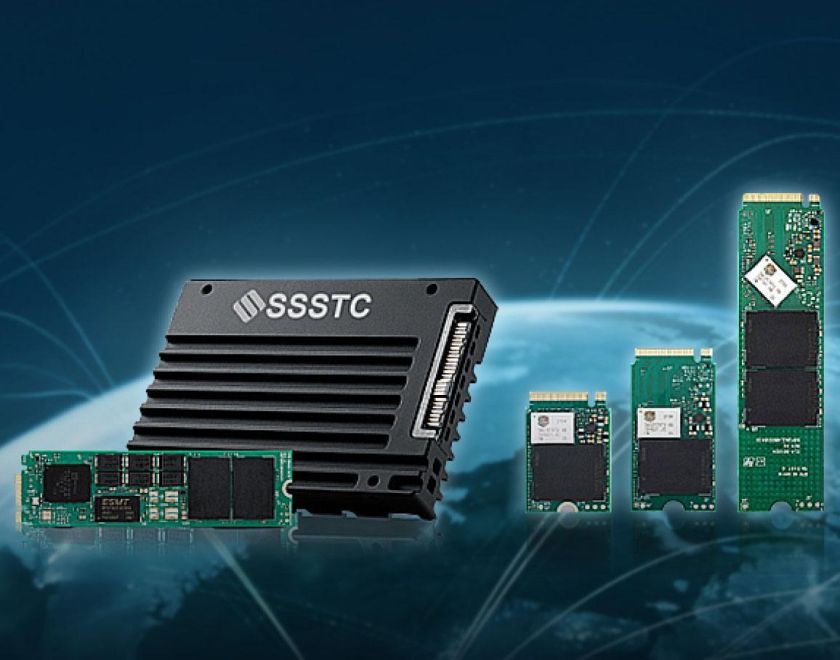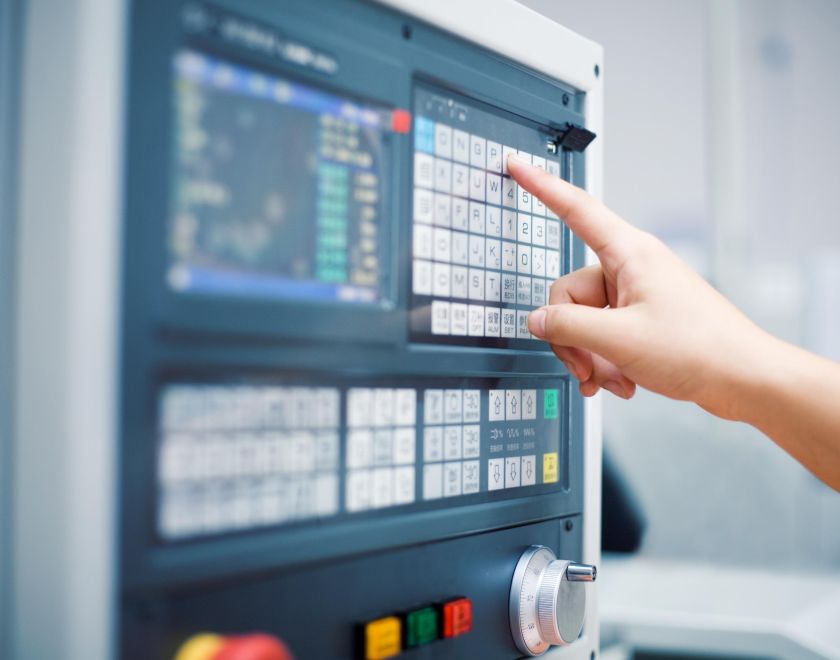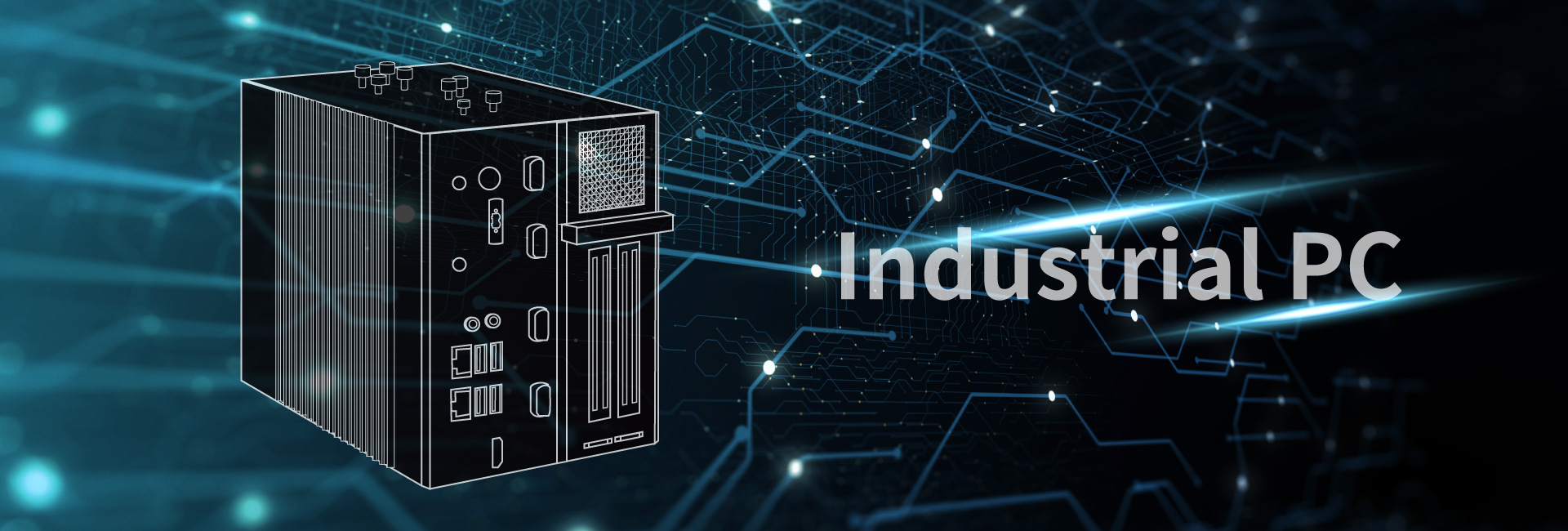
Industrial PC
Industrial PCs were first utilized in factory automation manufacturing processes in controlling, monitoring, and testing equipment and machinery, but they were limited to Single Board Computers. With the standardization and low-pricing trend of PCs, the PC-Based industrial PCs have come to optimize the mainstream industrial automation applications.
The primary differentiation of industrial PCs from standard PCs is their industrial-grade motherboards supporting multiple expansion with ample PCle and PCI slots. Industrial-grade motherboards also provides several I/O ports (ie: Ethernet, VGA, DVI, HDMI, COM, RS-232/422/485, PS/2, USB ports, etc.) to acquire data transmission and to support all types of peripheral devices and accessories. The I/O ports are commonly designed for the front-end to speed up the applications of ATE (Automatic Test Equipment). The diverse expansion slots and I/O ports enable industrial PCs to have high expansion capabilities to connect with all industrial controllers, such as PLC (Programmable Logic Controller) and RTU (Remote Terminal Unit), or all types of expansion modules, to accommodate the complex industrial environment.
As there is a diverse range of industrial motherboards such as ATX, Micro ATX, Mini-ITX, ETX, etc., the slots of these motherboards vary, so there are various chassis. Furthermore, industrial PCs inherently need to upgrade their system architectures due to frequent changes in production flows, so the expandable motherboard and chassis are very critical. To facilitate convenient system maintenance and expansion, the chassis of industrial PCs features all kinds of opening mechanism such as single side-panel, L-Type, U-Type, and so forth, to address their possible installation locations. A more user-friendly design for industrial-PC applications requires minimize screw usage, or even adopts tool-less thumb screws which allows a maintenance person to carry out quick work.
In terms of exterior design, industrial PCs are comprised of Tower, Rack, and Compact. Regardless of the types of industrial PC, system protection is a fundamental and critical demand, which entails basic features such as dust-proof, waterproof, static-proof, shock-absorbing, vibration-proof, effective cooling, backup power supply, defect detection, and so forth. Advanced features such as wide operating temperature support, wide operating pressure support, EMP protection, and so forth is also available to satisfy all types of highly demanding industrial environment.
Industrial PC Working Flow Chart
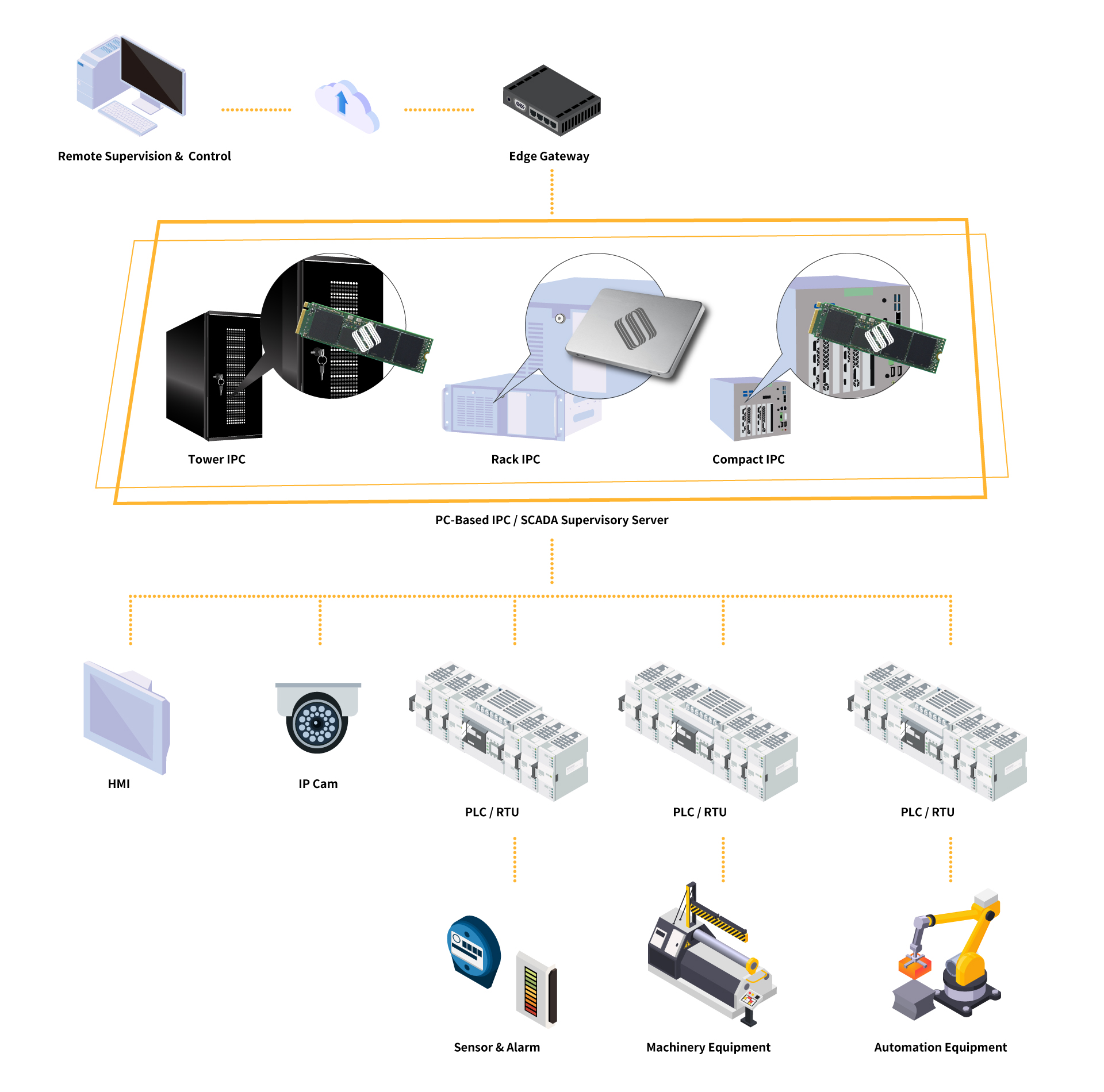
Industrial automation requires ultra-reliable platforms to ensure uninterrupted and stable equipment and system operations, and consequently, data integrity. The industrial-grade Wide Temp SSDs of Solid State Storage Technology Corporation can meet the requirements of industrial automation applications, as they all pass the wide-operating-temperature tests before leaving the factory. The SSDs are tested to ensure their normal functioning within the temperature range of industrial application scenarios offered by customers without any component damage, data loss, read-write abnormality, and so forth. The industrial-grade SSDs produced by Solid State Storage Technology Corporation also pass the extreme voltage stress test, as well as comply with the Anti-Vibration standard of the US military standard, MIL-STD-810G, and Anti-Shock standard of the US military standard, MIL-STD-202G and MIL-STD-883.
Successful Case
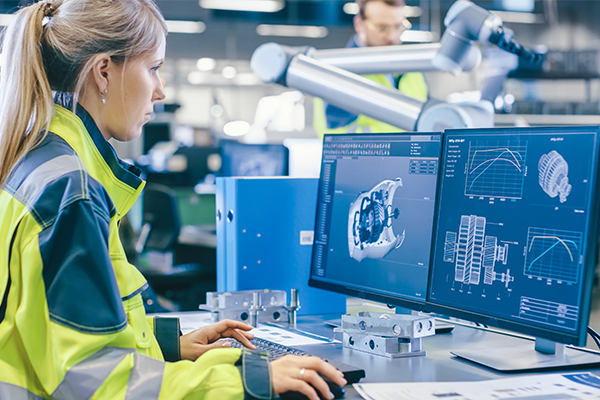
ATA 2.5” SSDs produced by Solid State Storage Technology Corporation have been featured in various types of industrial PCs developed by the world's third largest industrial PC manufacturer.
SSD Model: CV8 / CVB Series SATA 2.5-inch SSD
SATA SSD
40GB / 80GB / 160GB / 256GB / 320GB / 640GB
NAND Flash: 3D pSLC(TLC)
Interface: SATA 3 (6Gb/s)
Sequential Read: UP to 550 MB/s
Sequential Write: UP to 510 MB/s
SATA SSD
120GB / 128GB / 256GB / 480GB / 512GB / 960GB / 1024GB / 2048GB
NAND Flash: 3D TLC NAND Flash
Interface: SATA 3 (6Gb/s)
Sequential Read: UP to 550 MB/s
Sequential Write: UP to 510 MB/s
NVMe™ SSD
80GB / 160GB / 320GB
NAND Flash: 3D pSLC(TLC)
Interface: PCIe® Gen4 x4
Sequential Read: UP to 3700 MB/s
Sequential Write: UP to 2600 MB/s
NVMe™ SSD
40GB / 80GB / 160GB / 320GB / 640GB /1280GB
NAND Flash: 3D TLC NAND Flash
Interface: PCIe® Gen3 x4
Sequential Read: 3,100 MB/s
Sequential Write: 1,500 MB/s
NVMe™ SSD
40GB / 80GB / 160GB / 320GB / 640GB /1280GB
NAND Flash: 3D TLC NAND Flash
Interface: PCIe® Gen3 x4
Sequential Read: 3,100 MB/s
Sequential Write: 1,500 MB/s
NVMe™ SSD
80GB / 160GB / 320GB
NAND Flash: 3D TLC NAND Flash
Interface: PCIe® Gen4 x4
Sequential Read: UP to 3,500 MB/s
Sequential Write: UP to 2,100 MB/s
NVMe™ SSD
128GB / 256GB / 512GB / 1024GB / 2048GB /4096GB
NAND Flash: 3D TLC NAND Flash
Interface: PCIe® Gen3 x4
Sequential Read: 3,100 MB/s
Sequential Write: 1,500 MB/s
NVMe™ SSD
128GB / 256GB / 512GB / 1024GB / 2048GB /4096GB
NAND Flash: 3D TLC NAND Flash
Interface: PCIe® Gen3 x4
Sequential Read: 3,100 MB/s
Sequential Write: 1,500 MB/s
NVMe™ SSD
256GB / 512GB / 1024GB / 2048GB
NAND Flash: 3D TLC NAND Flash
Interface: PCIe® Gen4 x4
Sequential Read: UP to 6,800 MB/s
Sequential Write: UP to 4,800 MB/s
NVMe™ SSD
240GB / 256GB /480GB/ 512GB / 960GB/ 1024GB
NAND Flash: 3D TLC NAND Flash
Interface: PCIe® Gen4 x4
Sequential Read: UP to 3,700 MB/s
Sequential Write: UP to 2,600 MB/s
NVMe™ SSD
256GB / 512GB / 1024GB
NAND Flash: 3D TLC NAND Flash
Interface: PCIe® Gen4 x4
Sequential Read: UP to 3,700 MB/s
Sequential Write: UP to 2,600 MB/s
NVMe™ SSD
128GB / 256GB / 512GB
NAND Flash: 3D TLC NAND Flash
Interface: PCIe® Gen3 x4
Sequential Read: UP to 2,000 MB/s
Sequential Write: UP to 1,100 MB/s
NVMe™ SSD
128GB / 256GB / 512GB/ 1024GB
NAND Flash: 3D TLC NAND Flash
Interface: PCIe® Gen3 x4
Sequential Read: UP to 2,000 MB/s
Sequential Write: UP to 1,100 MB/s
NVMe™ SSD
128GB / 256GB / 512GB
NAND Flash: 3D TLC NAND Flash
Interface: PCIe® Gen3 x4
Sequential Read: UP to 3,700 MB/s
Sequential Write: UP to 2,600 MB/s
SATA SSD
128GB / 256GB / 512GB / 1024GB
NAND Flash: 3D TLC NAND Flash
Interface: SATA 3 (6Gb/s)
Sequential Read: UP to 550 MB/s
Sequential Write: UP to 510 MB/s
SATA SSD
128GB / 256GB / 512GB
NAND Flash: 3D TLC NAND flash
Interface: SATA 3 (6Gb/s)
Sequential Read: UP to 550 MB/s
Sequential Write: UP to 450 MB/s
SATA SSD
128GB / 256GB / 512GB
NAND Flash: 3D TLC NAND Flash
Interface: SATA 3 (6Gb/s)
Sequential Read: UP to 550 MB/s
Sequential Write: UP to 450 MB/s
NVMe™ SSD
128GB / 256GB / 512GB
NAND Flash: 3D TLC NAND Flash
Interface: PCIe® Gen3 x4
Sequential Read: UP to 2,000 MB/s
Sequential Write: UP to 1,100 MB/s
SATA
128GB / 256GB / 512GB / 1024GB
NAND Flash: 3D TLC NAND Flash
Interface: SATA 3 (6Gb/s)
Sequential Read: UP to 550 MB/s
Sequential Write: UP to 510 MB/s
SATA SSD
128GB / 256GB / 512GB / 1024GB / 2048GB
NAND Flash: 3D TLC NAND Flash
Interface: SATA 3 (6Gb/s)
Sequential Read: UP to 550 MB/s
Sequential Write: UP to 510 MB/s
SATA SSD
128G / 256GB / 512GB / 1024GB / 2048GB
NAND Flash: 3D TLC NAND Flash
Interface: SATA 3 (6Gb/s)
Sequential Read: UP to 550 MB/s
Sequential Write: UP to 510 MB/s








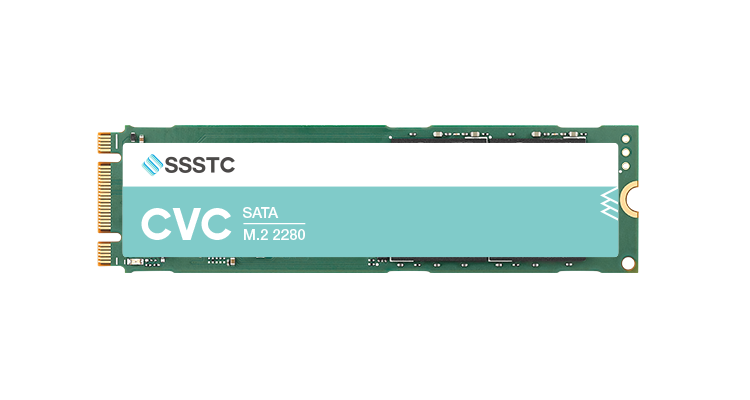
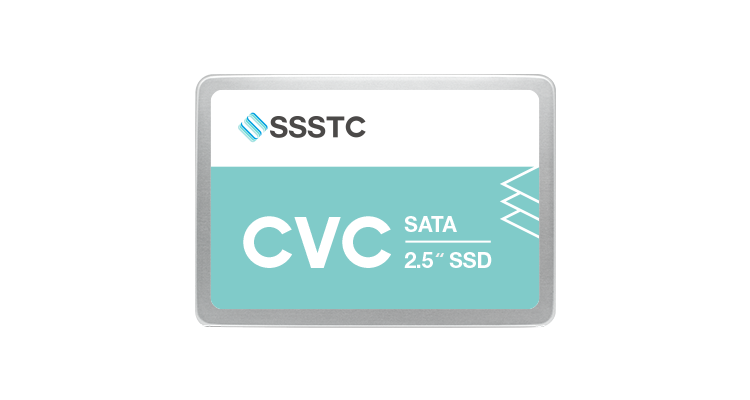
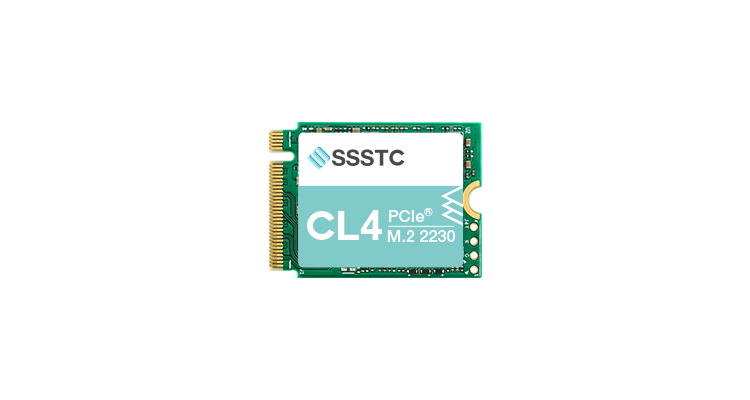
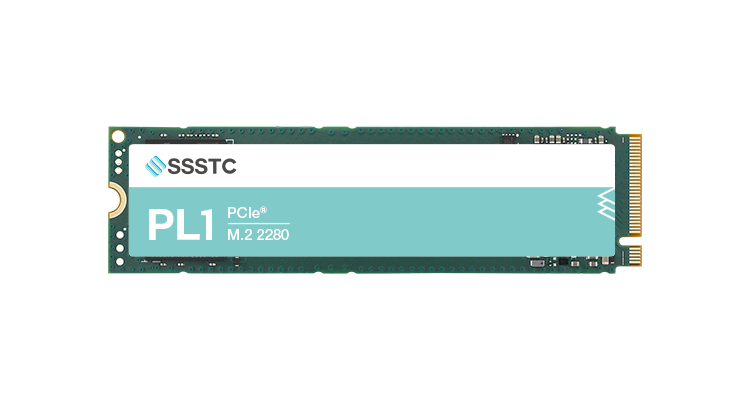
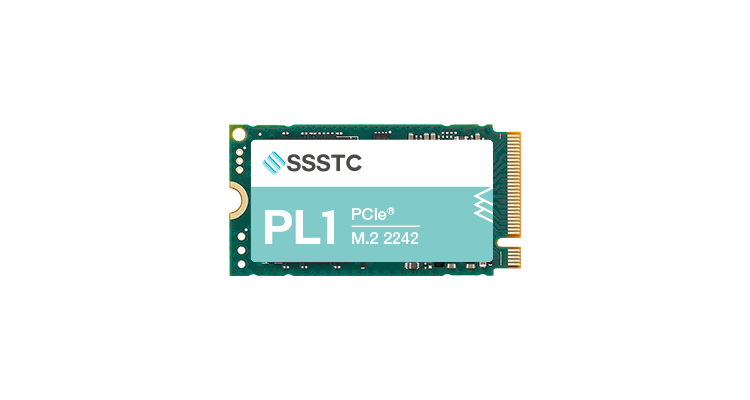
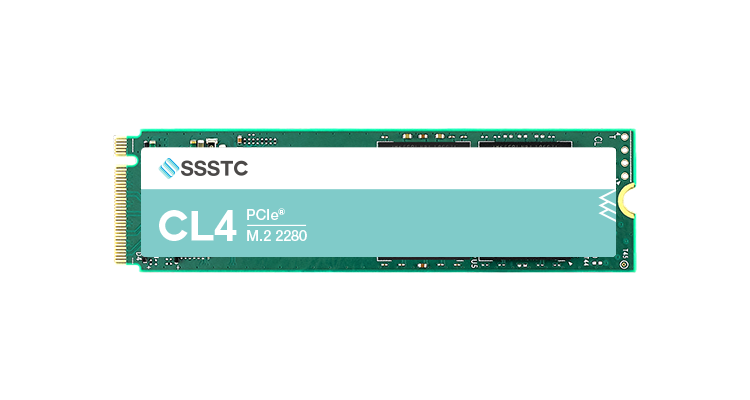
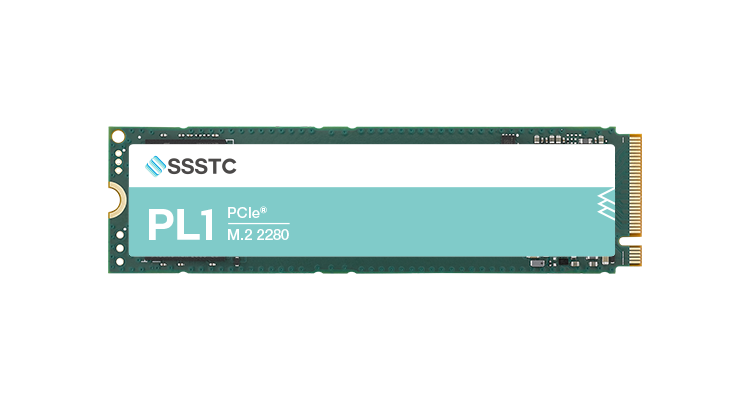
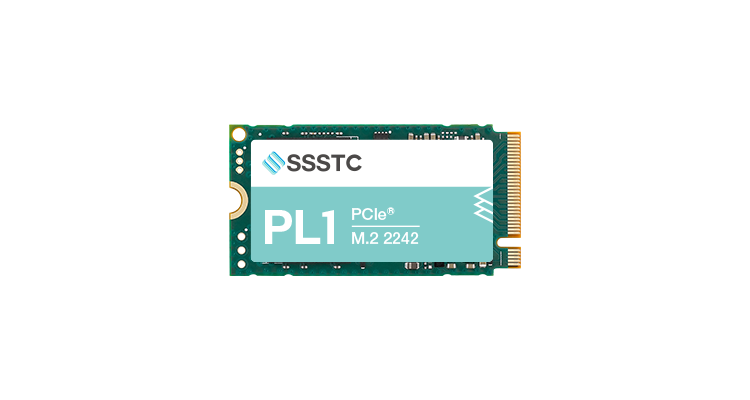
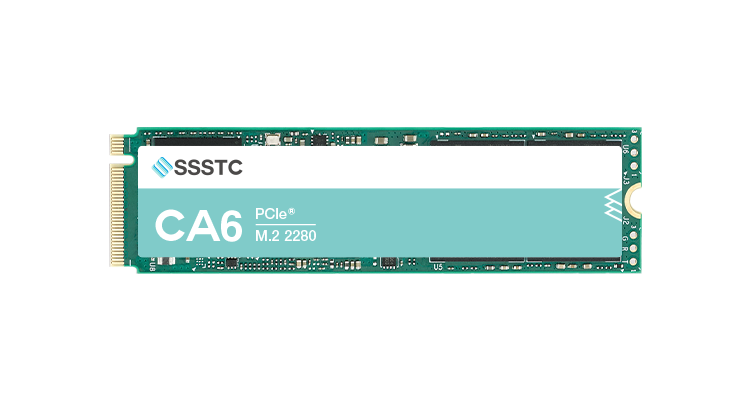
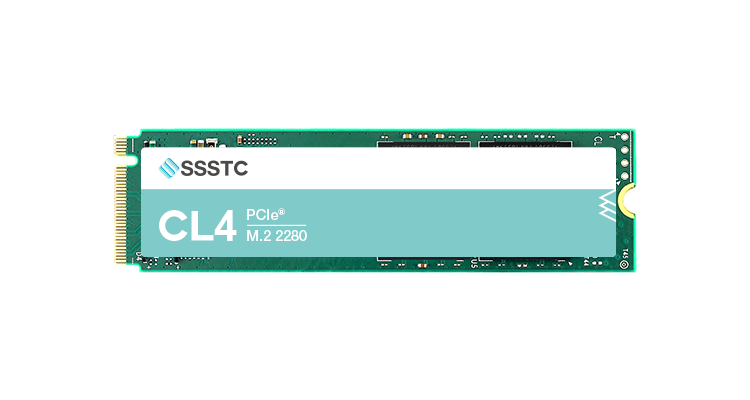
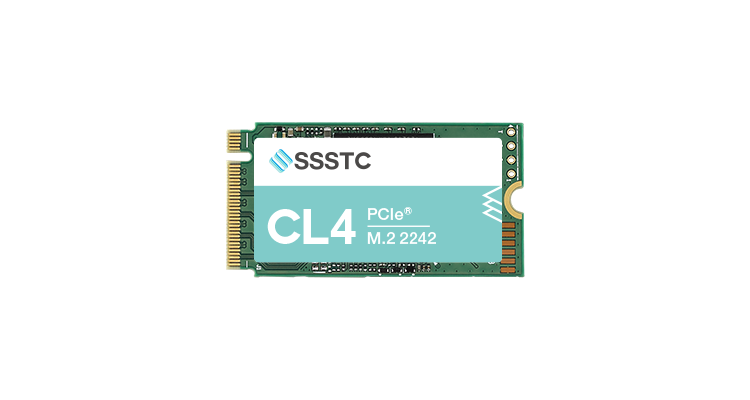
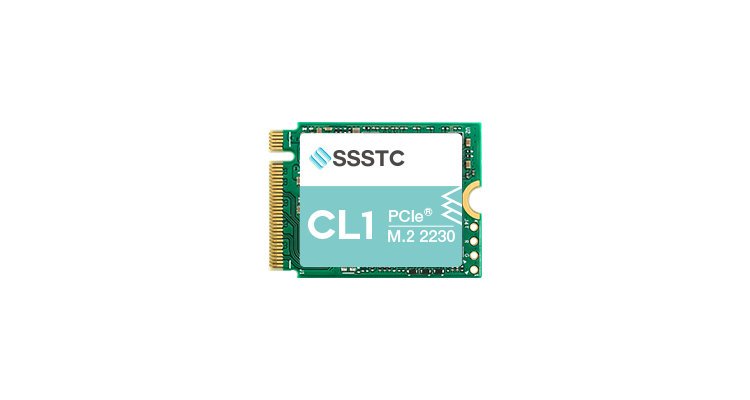
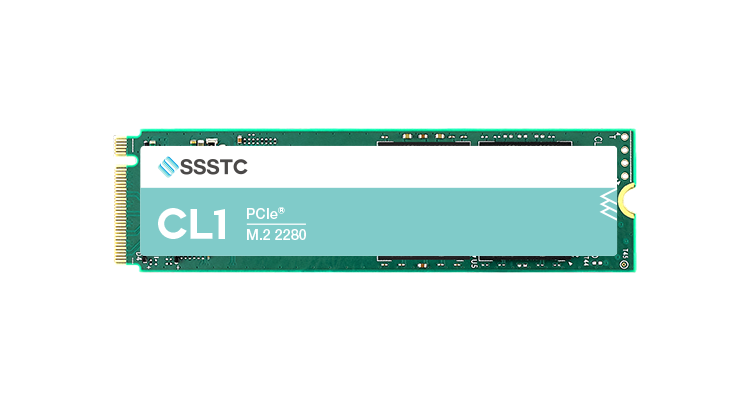
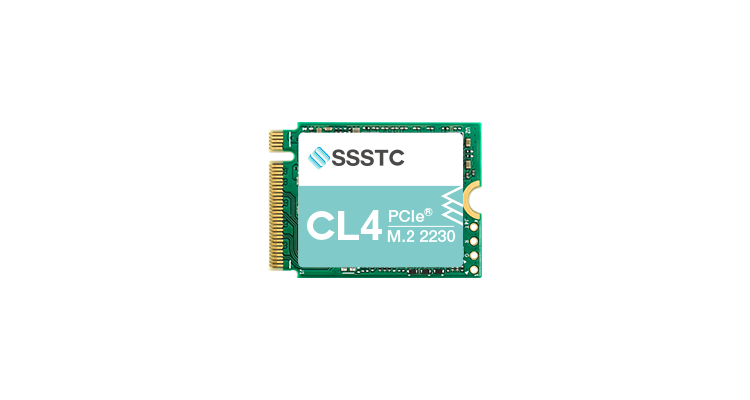
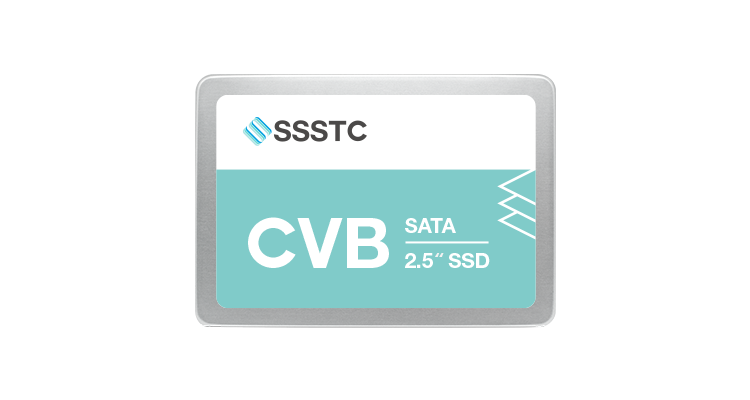
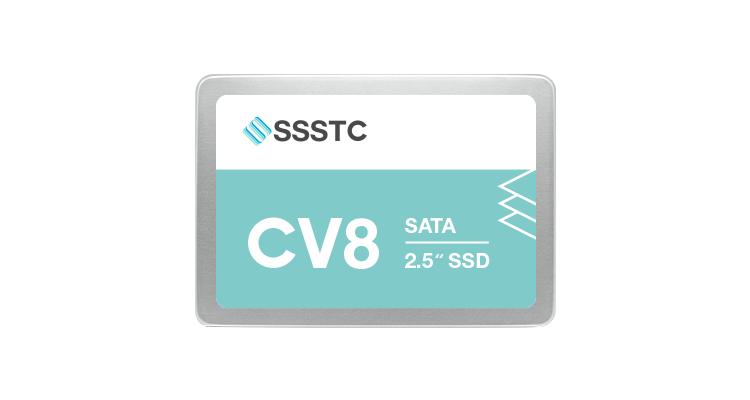
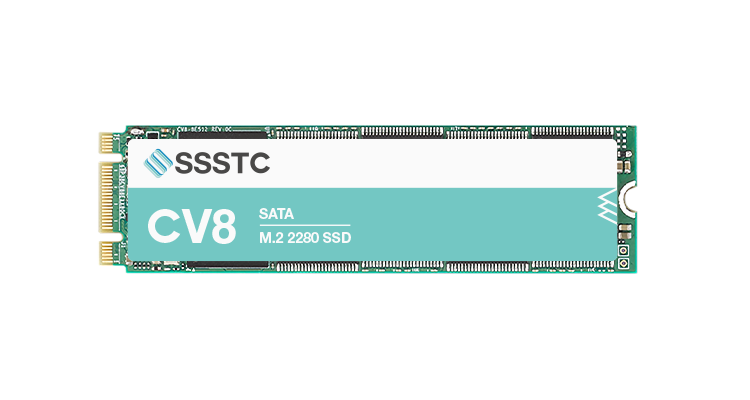
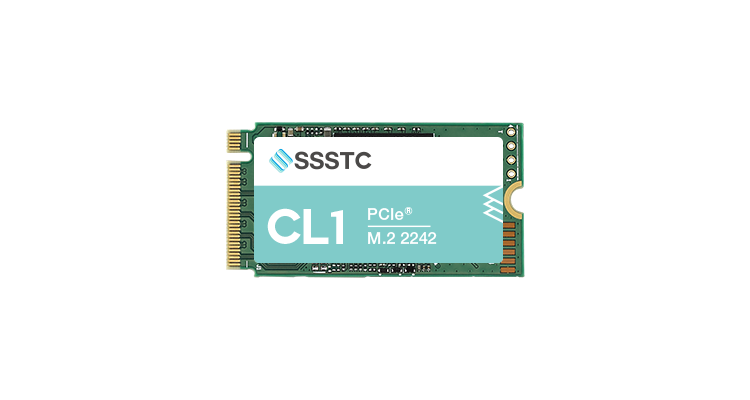
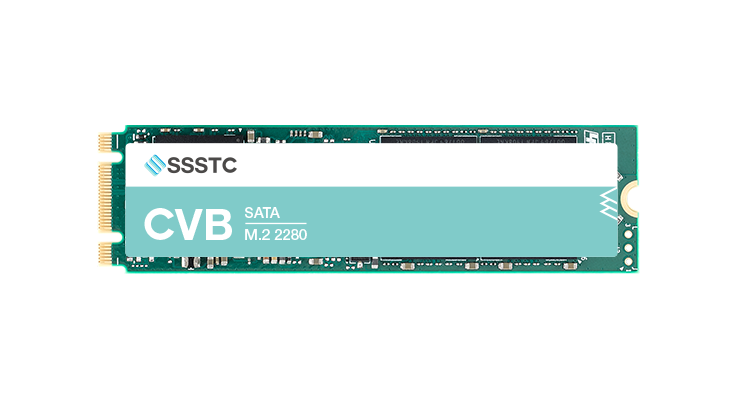
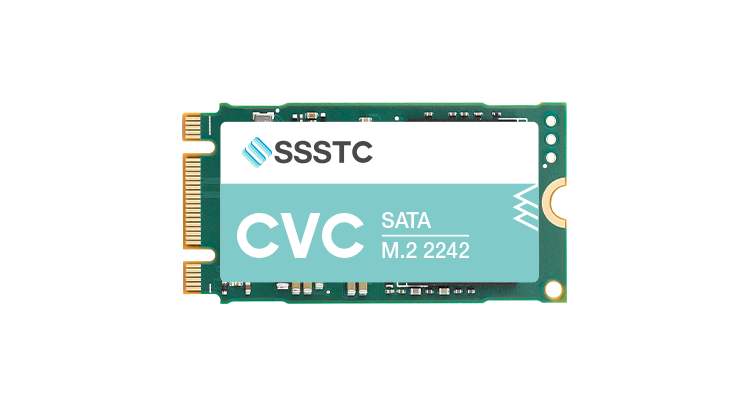
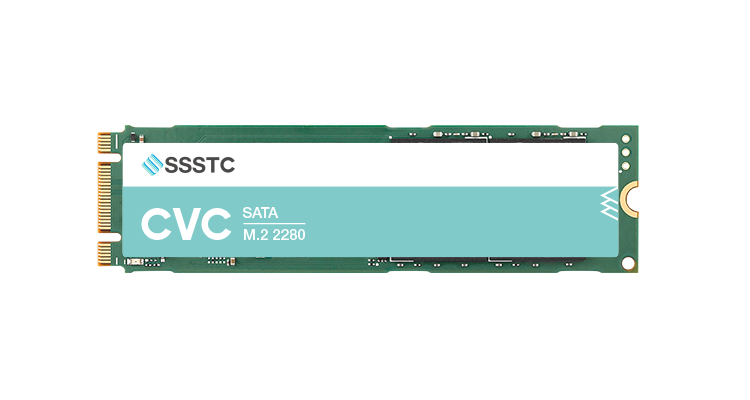
__24C15hqqtC.png)
__24C15wOdCC.png)

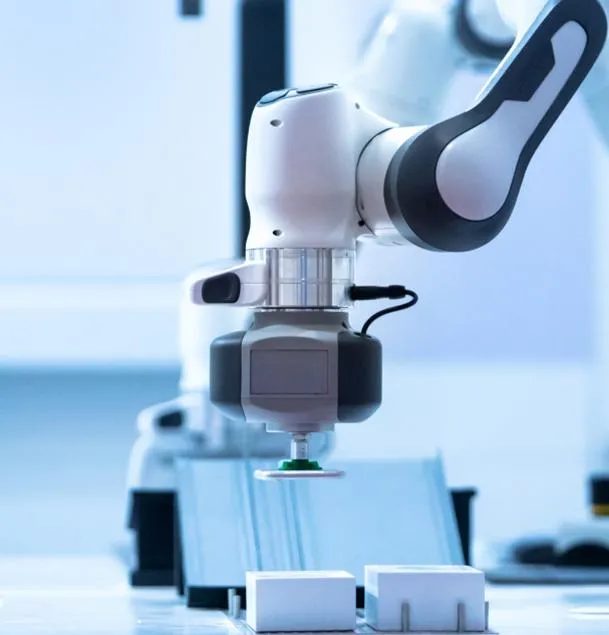
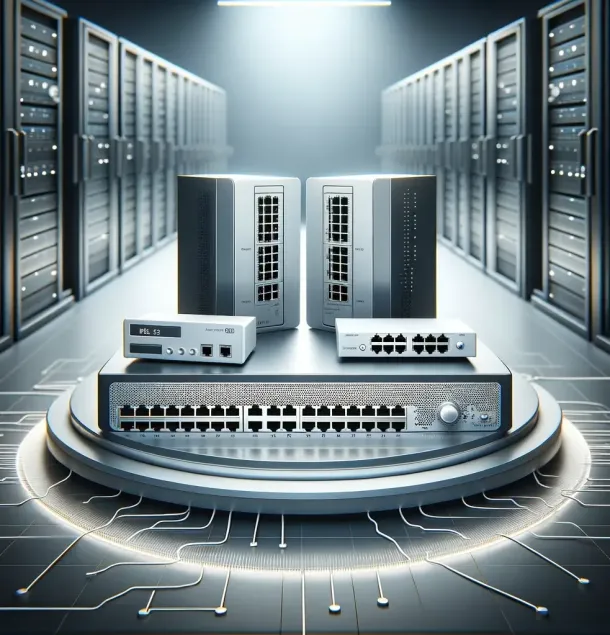






__24C05XQ2my.jpg)
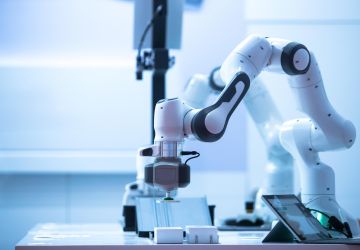

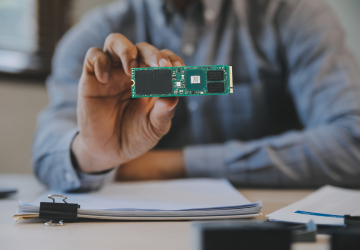
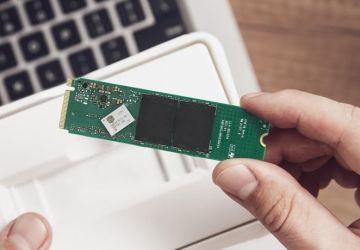



__24C05fplcZ.png)
__24C05vgHYC.png)
